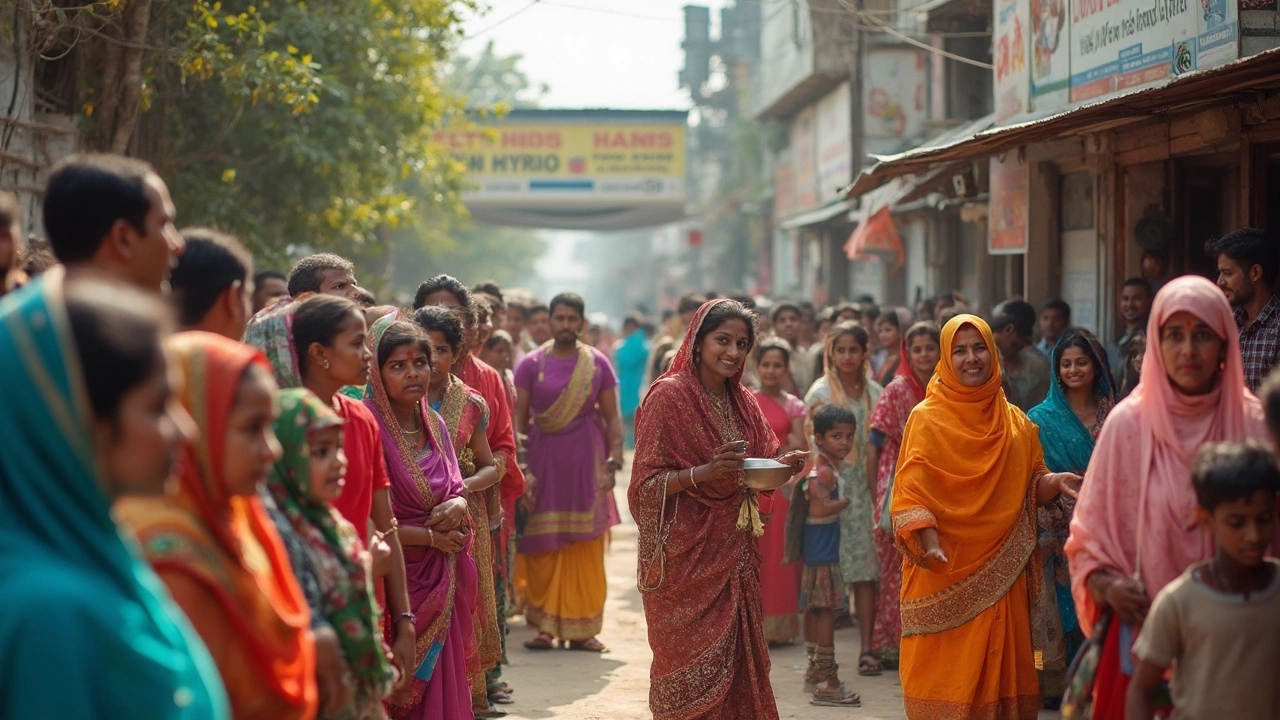Local Food Bank: How the Varanasi Diocese Supports Your Neighborhood
Ever wondered where the food that ends up on your plate could start its journey? In Varanasi, the Diocese runs a local food bank that collects, sorts, and hands out groceries to families who need a little extra help. It’s a simple idea—people donate what they can, volunteers sort the items, and those in need walk out with a bag of staples. No fuss, no drama.
Here’s the quick rundown of how it works. First, donors drop off non‑perishable foods, fresh produce, or even canned meals at the church’s pantry room. The pantry is open three evenings a week, and the staff greets you with a smile and a short checklist to keep things organized. If you can’t bring items, you can also give money online; the Diocese turns cash into fresh produce from local farms.
What You Can Get from the Food Bank
The food bank focuses on basics: rice, wheat flour, lentils, cooking oil, and canned veggies. They also stock seasonal fruits and occasionally a few special items like baby formula or gluten‑free products. Each family receives a bag that covers a week’s meals for a small household. If you have a larger family, you can ask for a second bag—just let the volunteers know your needs.
All there is to do is show up with a valid ID and a brief note about your situation. The process is quick, usually under ten minutes, so you can get back to your day without a long wait.
How You Can Help the Food Bank
Want to make a difference? There are three easy ways. 1) Donate food or cash. Even a single box of rice helps stretch the supplies. 2) Volunteer for an hour or two. Sorting shelves, checking expiration dates, and handing out bags are all tasks that need friendly faces. 3) Spread the word. Tell neighbors, share on social media, or ask local businesses to set up a collection box. The more people know about the pantry, the more we can help.
Volunteers get a quick briefing, then head straight to the shelving area. No special skills are required—just a willingness to lift a few boxes and a smile. The Diocese also runs a monthly training session on food safety, so you’ll learn the basics of handling perishable items safely.
One of the biggest challenges is keeping the pantry stocked during festival seasons when demand spikes. That’s why the Diocese partners with local markets and farms for bulk donations. If you own a shop, consider a “donate a bag” promotion where every purchase adds a grocery bag to the pantry.
In addition to groceries, the food bank offers a handful of workshops: budgeting basics, cooking simple meals, and nutrition tips for kids. These sessions are free and run on Saturday mornings. They’re popular with families who want to stretch their food dollars further.
Feeling hesitant about using the service? Rest assured the pantry is a judgment‑free zone. Staff treat every visitor with respect and confidentiality. The goal is simple: make sure no one in our community goes hungry.
If you’re looking for immediate help, head to the church’s main entrance between 6 pm and 8 pm on Tuesdays, Thursdays, or Saturdays. Bring your ID, a list of family members, and a hopeful attitude. If you prefer to volunteer, sign up at the welcome desk or call the parish office; they’ll match you with a shift that fits your schedule.
Remember, a local food bank isn’t just about food—it’s about community, compassion, and connection. Whether you’re giving or receiving, you’re part of a network that keeps Varanasi strong. So next time you see a box of canned beans, think of the families that could turn it into a warm dinner thanks to the Varanasi Diocese’s food bank.

Can Anyone Go to a Local Food Bank? Practical Answers and Surprising Facts
- Jun, 19 2025
- 0
Ever wondered if anyone can just walk into a local food bank and get help? This article breaks down how food banks work, who can use them, and what to expect when you show up. You'll find out about requirements, what you need to bring, and how food banks really operate in most communities. Get answers to common questions and learn useful tips that could help you—and maybe someone you know. No confusion, just honest information you can trust.
Categories
- Volunteering (40)
- Environment (38)
- Youth Programs (34)
- Charity Events (31)
- Homelessness (31)
- Community Outreach (28)
- Charitable Organizations (27)
- Community Support (18)
- Finance (14)
- Education (10)
Archives
- February 2026 (5)
- January 2026 (7)
- December 2025 (10)
- November 2025 (8)
- October 2025 (23)
- September 2025 (4)
- August 2025 (8)
- July 2025 (31)
- June 2025 (29)
- May 2025 (30)
- April 2025 (31)
- March 2025 (30)
- community outreach
- charity events
- after-school clubs
- community service
- charitable trust
- philanthropy
- volunteering
- homeless shelters
- environmental groups
- volunteer opportunities
- community engagement
- charitable giving
- estate planning
- mental health
- charity
- student engagement
- community help
- donations
- volunteer
- youth organizations